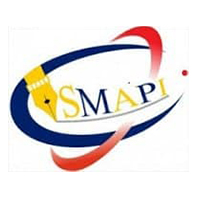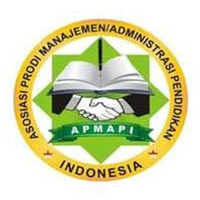Menarikkah Jabatan Kepala Sekolah Dasar di Indonesia dalam Pandangan Guru?
DOI:
https://doi.org/10.21831/jump.v2i1.31051Keywords:
kekepalasekolahan, kepemimpinan kepala sekolah, pekerjaan kepala sekolah,Abstract
Kepala sekolah berperan penting untuk keberhasilan sekolah. Namun, penelitian tentang kekepalasekolahan masih sedikit. Penelitian ini bertujuan untuk menggali pandangan guru tentang jabatan kepala sekolah dasar dan bagaimana mereka menyikapi tawaran rekrutmen dan seleksi calon kepala sekolah. Penelitian ini menggunakan pendekatan kualitatif untuk mengeksplorasi fenomena tersebut. Penelitian ini dilaksanakan di sekolah dasar di Propinsi Daerah Istimewa Yogyakarta, Jawa, Indonesia. Pengumpulan data dilakukan dengan wawancara tidak terstruktur kepada 11 orang guru sekolah dasar yang telah memenuhi syarat untuk mengikuti rekrutmen dan seleksi calon kepala sekolah. Mereka dipilih dengan metode purposive. Data penelitian diolah dengan teknik analisis data kualitatif. Wawancara juga dilakukan dengan kepala sekolah, pengawas, dan personil Dinas Pendidikan untuk kredibilitas data. Hasil penelitian menunjukkan bahwa guru memandang jabatan kepala sekolah dasar sebagai jabatan yang beban pekerjaannya berat, insentifnya rendah, dan juga membutuhkan peran kepemimpinan yang besar. Hampir semua guru sekolah dasar bersikap menolak untuk mengikuti rekrutmen dan seleksi calon kepala sekolah. Sebagian kecil sisanya menerima dengan terpaksa.References
Andriani, D. E. (2017). Leadership at the primary school level in Indonesia: A study of the historical background, recent developments, and current concerns of school leaders in a postcolonial and developing country (Doctoral thesis). University of Western Australia.
Andriani, D. E., Clarke, S., O' Donoghue (2019). Charting primary school leadership in Indonesia from centralisation to decentralisation era. In Tom O' Donoghue & Simon Clarke (Eds.). The theory and history of education. Monograph Series Vol. 1: New directions in research on education reconstruction in challenging circumstances. (pp. 93-112). Kingston: The Queens' University.
Barty, K., Thomson, P., Blamore, J., & Sachs, J. (2005). Unpacking the issues: researching the shortage of school principals in two states in Australia. The Australian Educational Researcher, 32(3), 1-18.
Bottery, M. (2010). Contexts for leadership at the beginning of th 21st century. International Encyclopedia of Education (3rd ed). Melbourne: Elsevier Science & Technology.
Caldwell, B. J. (2010). School reform and restructuring: self-managing school International Encyclopedia of Education (3rd ed). Melbourne: Elsevier Science & Technology.
Chapman, J. D., (2005). Recruitment, retention, and development of school principals. Paris & Brussels: IIEP & IAE. Retrieved from https://unesdoc.unesco.org/ark:/48223/pf0000140987_eng
Clarke, S., Stevens, E., & Wildy, H. (2006). Rural rides in Queensland: travels with novice teaching principals. International Journal of Leadership in Education: Theory and Practice, 9(1), 75-88. doi:10.1080/13603120500471958
Clarke, S., & Wildy, H. (2004). Context counts: Viewing small school leadership from the inside out. Journal of Educational Administration, 42(5), 555-572. doi:10.1108/09578230410554061
Creswell, J.W. (2009). Research design: qualitative, quantitative, and mixed-method approaches (3rd ed). London: Sage.
Cusick, P. A., (2003). A study of Michigan's school principal shortage. Policy Report No. 12. Retrieved from https://www.semanticscholar.org/paper/A-Study-of-Michigan%27s-School-Principal-Shortage.-Cusick/8337015d34cd65cc957a646e294cf0d2dddeeac6
Davis, H. D., & Hammond, L. D., (2012). Innovative principal preparation programs: what works and how we know. Planning and changing, 43(1), 25-45. Retrieved from https://files.eric.ed.gov/fulltext/EJ977545.pdf
Doyle, D. & Locke, G. (2014). Lacking leaders: The challenges of principal recruitment, selection, and placement. Washington D. C: Thomas B. Fordham Institute. Retrieved from https://files.eric.ed.gov/fulltext/ED545231.pdf.
Firman, H., & Tola, B. (2008). The Future of Schooling in Indonesia. Journal of International Cooperation in Education, 11(1), 71-84. doi: 10.15027/34287
Gene, B., O' Neill, K., Betty, F., David, H., (2003). Good principals are the key to successful schools: six strategies to prepare more good principals. Atlanta: Southern Regional Education Board. Retrieved from https://files.eric.ed.gov/fulltext/ED478010.pdf.
Gronn, P., & Rawlings-Sanaei, F. (2003). Principal recruitment in a climate of leadership disengagement. Australian Journal of Education, 47(2), 172- 184. https://doi.org/10.1177/000494410304700206
Hallinger, P. & Heck, R. H. (1998) Exploring the principal's contribution to school effectiveness: 1980"1995. School Effectiveness and School Improvement: An International Journal of Research, Policy and Practice, 9(2),157-191. doi: 10.1080/0924345980090203
Halsey, R. J., Drummond, A., & Breda, M. v. (2010). A research report on educational leaders and leadership in rural* Australia: profiles, pressures and priorities. Retrieved from www.flinders.edu.au/education/rural.
Hine, G. (2003). Are American schools facing a shortage of qualified adminitrators?. A Journal of Inquiry and Practice, 7(2), 266-277. Retrieved from https://ejournals.bc.edu/index.php/cej/article/view/489/480
Isjuandi, dan Anan, S. (2017). Evaluasi program pendidikan dan pelatihan calon kepala sekolah di Kabupaten Kayong Utara Provinsi Kalimantan Barat : Studi evaluatif model CIPPO pasca pendidikan dan pelatihan. Jurnal Evaluasi Pendidikan, 8(2), 88-101. doi: https://doi.org/10.21009/JEP.082.04
Juliyanti, D., T. (2019). Evaluasi kualitatif program penyiapan calon kepala sekolah di Kota Yogyakarta. (Skripsi). Universitas Negeri Yogyakarta
Kementerian Pendidikan dan Kebudayaan. (2013a). Panduan nasional MBS-SD. Jakarta: Kementerian Pendidikan dan Kebudayaan Direktorat Jenderal Pendidikan Dasar Direktorat Pembinaan Sekolah Dasar.
Kementerian Pendidikan dan Kebudayaan. (2013b). Panduan pelaksanaan manajemen berbasis sekolah di sekolah dasar. Buku IV. Jakarta: Kementerian Pendidikan dan Kebudayaan Direktorat Jenderal Pendidikan Dasar Direktorat Pembinaan Sekolah Dasar.
Kementerian Pendidikan dan Kebudayaan. (2018). Peraturan Menteri Pendidikan dan Kebudayaan RI Nomor 15 Tahun 2018 tentang pemenuhan beban kerja guru, kepala sekolah, dan pengawas sekolah. Jakarta: Kementerian Pendidikan dan Kebudayaan.
Kementerian Pendidikan Nasional. (2007). Peraturan Menteri Pendidikan Nasional Nomor 13 Tahun 2007 tentang Standar Kepala Sekolah/Madrasah. Jakarta: Kementerian Pendidikan Nasional.
Kementerian Pendidikan Nasional. (2010). Peraturan Menteri Pendidikan Nasional Nomor 28 Tahun 2010 tentang penugasan guru sebagai kepala sekolah/madrasah. Jakarta: Kementerian Pendidikan Nasional.
Kementerian Pendidikan Nasional. (2011a). Buku kerja kepala sekolah. Jakarta: Pusat Pengembangan Tenaga Kependidikan BPSDM PPMP Kementerian Pendidikan Nasional.
Kementerian Pendidikan Nasional. (2011b). Petunjuk pelaksanaan diklat calon kepala sekolah/madrasah. Jakarta: Kementerian Pendidikan Nasional BPSDM dan PMP LPPKS.
Leithwood, K. (2007). Organizational conditions that enhance teaching and learning. In W. D. Hawley (Ed.), The keys to effective schools. Educational reform as continues improvement (pp. 139-152). California: Corwin Press
Leithwood, K., Harris, A., & Hopkins, D. (2008). Seven strong claims about successful school leaderhip. School Leadership & Management: Formerly School Organization, 28(1), 22-42. doi:10.1080/13632430701800060
Leithwood, K., & Levin, B. (2010). Understanding how leadership influences learning. In P. Peterson, E. Baker, & B. McGaw (Eds.), International Encyclopedia of Education (3rd ed). London: Elsevier, Ltd
Leithwood, K., Louis, K.. S., Anderson, A., & Wahlstrom, K. (2004). Review of research. How leadership influences student learning. Retrieved from https://www.wallacefoundation.org/knowledge-center/Documents/How-Leadership-Influences-Student-Learning.pdf.
Lingam, G., Lingam, N., & Raghuwaiya, K. (2014). Challenges for rural school leaders in a developing context: the case of Solomon Islands. International Journal of Social, Behavioral, Educational, Economic, Business and Industrial Engineering, 8(2), 372-380. Retrieved from https://pdfs.semanticscholar.org/2a74/34a523f6e8f3b981fa3e4271e56c6d4bb052.pdf
LP2KS. (2016). Lembaga pengembangan dan pemberdayaan kepala sekolah. Retrieved from http://lppks.org/
Marzano, R. J., Waters, T., & McNulty, B. A. (2005). School leadership that works. The United State of America: ASCD.
Ministry of Education and Culture. (2013). Overview of the education sector in Indonesia 2012. Achievement and challenges. Jakarta: Ministry of Education and Culture.
Mulford, B. (2010). Leadership and management overview. International Encyclopedia of Education (3rd ed). Melbourne: Elsevier Science & Technology.
NAASP & NAESP. (2013). Leadership matters. What the research says about the importanc of principal leadership. Virginia: NAASP & NAESP. Retrieved from https://www.naesp.org/sites/default/files/LeadershipMatters.pdf.
Normore, A. H., (2006). Leadership recruitment and selection in school districts: trends and issues. Journal of Educational Thoughts, 40(1), 41-73. Retrieved from https://www.jstor.org/stable/pdf/23767533.pdf?refreqid=excelsior%3Aa9eda34316fa2105b84820b976471531.
Novitasari, R. (2020). Penyiapan calon kepala sekolah dalam kerangka desentralisasi pendidikan di Kabupaten/Kota. (Skripsi). Universitas Negeri Yogyakarta
Republik Indonesia. (2003). Undang-Undang Nomor 20 Tahun 2003 tentang Sistem Pendidikan Nasional. Jakarta: Republik Indonesia.
Republik Indonesia. (2008). Peraturan Pemerintah RI Nomor 74 Tahun 2008 tentang Guru.
Plessis, P. D. (2014). Problems and complexities in rural schools: challenges of education and social development. Mediterranean Journal of Social Sciences, 5(20), 1109-1117. doi:10.5901/mjss.2014.v5n20p1109
Priyadi, J. (2017). Pengelolaan latihan kepemimpinan pada diklat ccalon kepala sekolah di Lembaga Pengembangan Pemberdayaan Kepala Sekolah (LPPKS). (Tesis tidak diterbitkan). Solo: Universitas Muhammadiyah Surakarta.
Renihan, P. (1999). In-school leadership for Saskatchewan schools: Issues and strategies. Saskatchewan Educational Leadership Unit, University of Saskatchewan SSTA Research Centre Report No. 99-02. Retrieved from https://saskschoolboards.ca/wp-content/uploads/99-02.htm.
Sayce, D., & Lavery, S. D. (2013). Beginning the school principalship in rural and remote Catholic schools in Western Australia. Paper presented at the 6th International Conference on Catholic Educational Leadership, The University of Notre Dame Australia. Retrieved from http://researchonline.nd.edu.au/edu_conference/61.
Shoraku, A. (2008). Educational movement toward school-based management in East Asia: Cambodia, Indonesia and Thailand. Paper commissioned for the EFA Global Monitoring Report 2009, Overcoming Inequality: why governance matters. Retrieved from http://hdl.handle.net/123456789/386.
Stake, R.E. (2010) Qualitative research: Studying how things work. London: The Guilford Press.
Styron, R. A., & Styron, J. L. (2011). Critical issues facing school principals. Journal of College Teaching & Learning, 8(5), 1-11. doi: 10.19030/tlc.v8i5.8158
Sumintono, B. (2017). Perkembangan penyiapan kepala sekolah di Indonesia. Makalah yang disampaikan pada Seminar Internasional dan Musyawarah Kerja Nasional VI APMAPI. Pontianak, 9 September 2017.
Sumintono, B., Sheyoputry, E. Y. A., Jiang, N., Misbach, I. H., & Jumintono. (2015). Becoming a principal in Indonesia: possibility, pitfalls and potentials. Asia Pacific Journal of Education, 25(3), 342-352. doi: https://doi.org/10.1080/02188791.2015.1056595
Sun, J., & Leithwood, K. (2015) Direction-setting school leadership practices: a meta-analytical review of evidence about their influence. School Effectiveness and School Improvement 26(4), 499-523. doi: https://doi.org/10.1080/09243453.2015.1005106
Suyud, Andriani, D. E., Purwanto, N. A., (2018). Laporan penelitian. Evaluasi kualitatif program penyiapan kepala sekolah di Daerah Istimewa Yogyakarta. Yogyakarta: Universitas Negeri Yogyakarta
Tuck, A. (2009). Small school challenges, learning lessons from small school headteachers. Retrieved from: www.ncsl.org.uk/researchassociates.
Whitaker, K., S. (2003). Principal role changes and influence on principal recruitment and selection, Journal of Educational Administration, 41(1), 37 – 54. doi: http://dx.doi.org/10.1108/09578230310457420
Wilson, E., & Brundrett, M. (2005). Leading the small rural primary school: the challenges of headship. Education -3-13 BPRS, 33(3), 44-48. doi:10.1080/03004270585200331
Wise, D., (2015). Emerging challenges facing school principals. NCPEA Educational Leadership Review, 16(2), 103-115. Retrieved from https://files.eric.ed.gov/fulltext/EJ1105451.pdf
World Bank. (2012). Implementation of school-based management in Indonesia. Retrieved from http://documents.worldbank.org/curated/en/537441468042883853/pdf/NonAsciiFileName0.pdf
Zeitoun, P., & Newton, R.M. (2002). Evaluative report. Strategies for reinventing the principalship. Retrieved from https://files.eric.ed.gov/fulltext/ED469274.pdf
Downloads
Published
How to Cite
Issue
Section
License
Authors who publish with this journal agree to the following terms:
- The copyright of the accepted for publication articles shall be assigned to Jurnal Manajemen Pendidikan (JuMP) as the publisher of the journal. The intended copyright includes the rights to publish articles in various forms (including reprints).
- Jurnal Manajemen Pendidikan (JuMP) maintain the publishing rights of the published articles.
- Authors are permitted to republish or disseminate published articles by sharing the link/DOI of the article at Jurnal Manajemen Pendidikan (JuMP). Authors are allowed to use their articles for any legal purposes deemed necessary without written permission from Jurnal Manajemen Pendidikan (JuMP) with an acknowledgment of initial publication to this journal.












